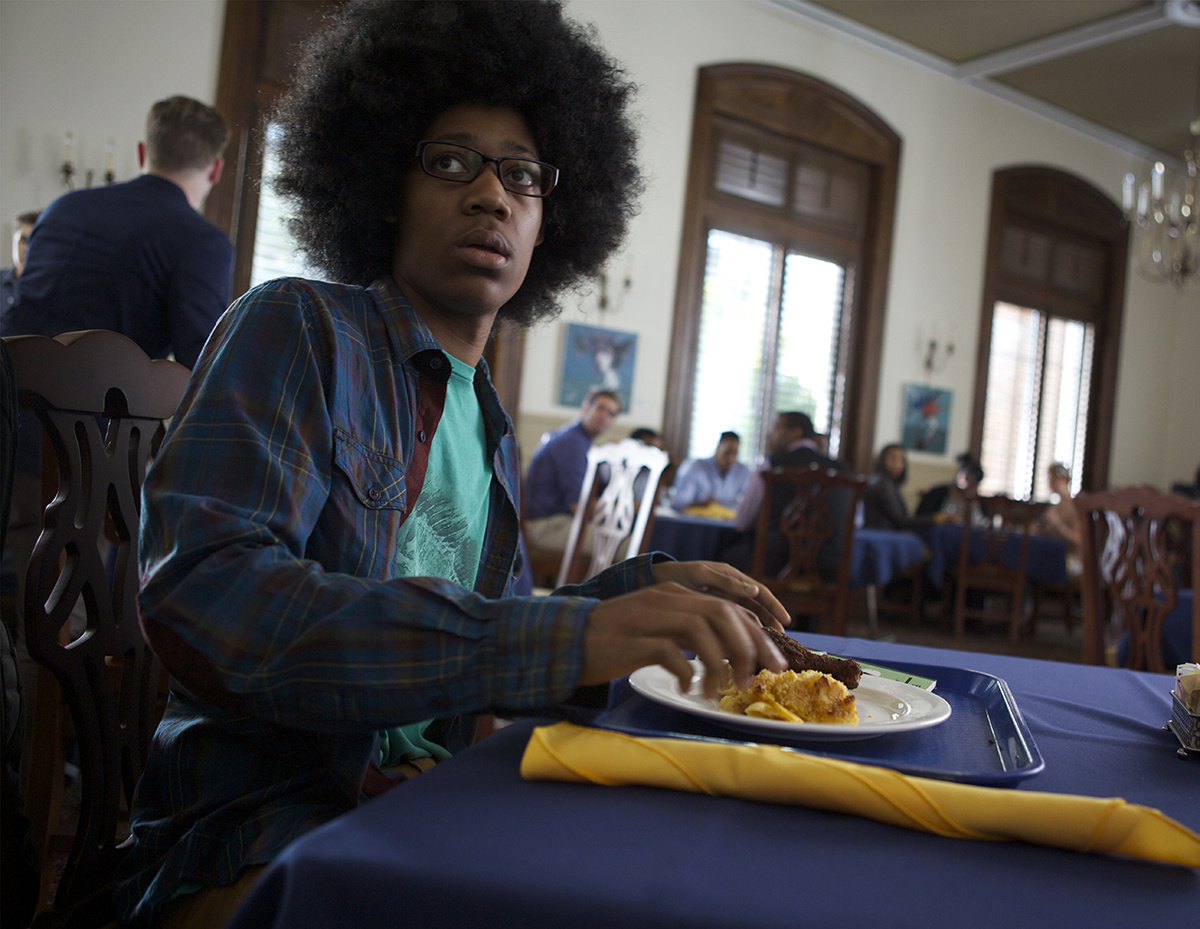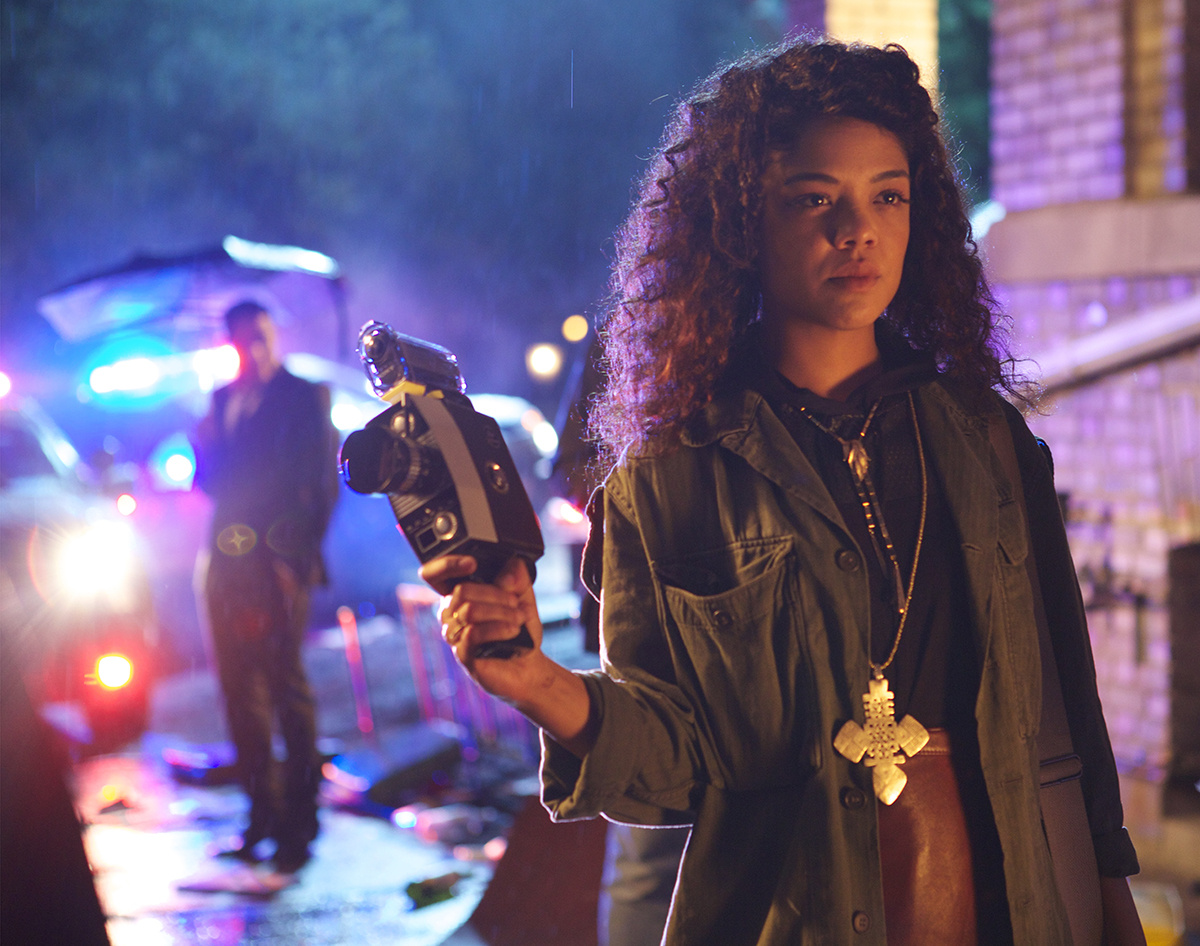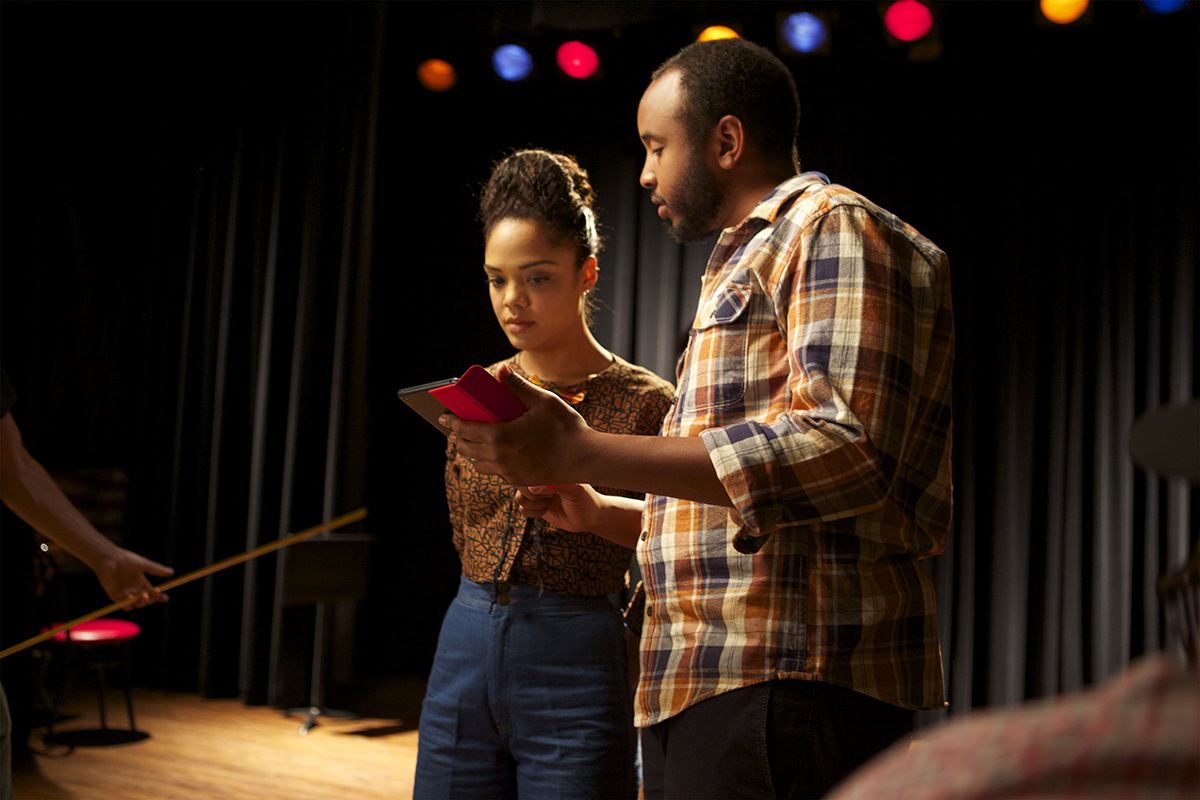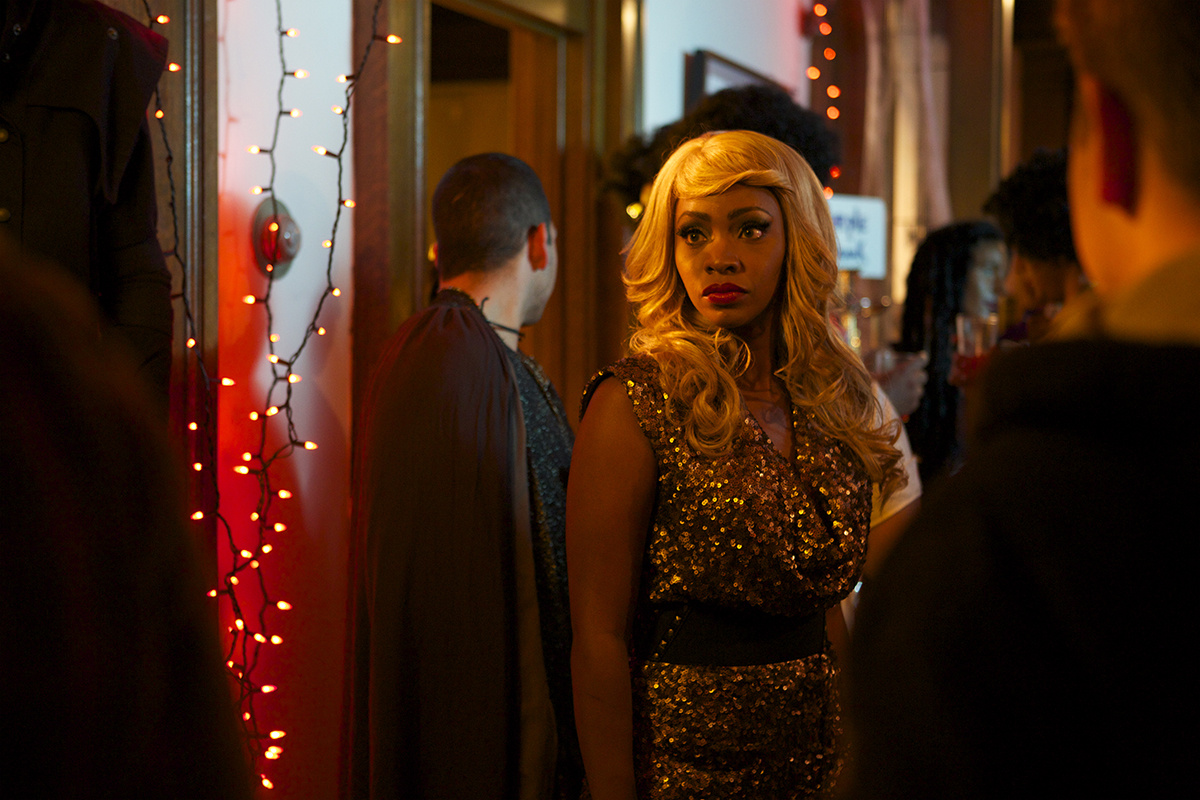
Advertisement
Justin Simien: First of all, you’re welcome to project yourself into it. That’s the fun thing for me about multi-protagonist stories: you can kind of put a few different things out there and have the characters sort of net out in different ways, and have everyone respond to it in a way that makes sense specifically to them. I found it kind of impossible to talk about race identity—or identity at all—from one singular point of view, which is why I have four of them in the film. I think, ultimately, my focus for the movie is that there’s a relationship between identity and self. In America, it’s impossible—at least as far as I have seen—to make maximum use of your potential if you don’t make decisions about your identity.
Advertisement

I mean, I don’t take an all-or-nothing view on it. I think it has to be a balance. What’s interesting about your reading of the film is that [Sam]—and I don’t want to give anything away to your readers who may not have seen the film—she makes a decision and it feels like one of those movie moments, but the scene also quickly reminds you of the reality that she’s stepping into, which is bound to be uncomfortable. There will be, probably, social repercussions for the decision that she makes. Whereas Lionel, who I actually think steps into an identity and, at least for the moment, kind of has an uncomplicated, warm reception to his stepping into an identity.
Advertisement
Yeah, because ultimately you are in control, but to not have any identity at all will also leave you left behind. It’ll just completely leave you out of the conversation about what you can or can’t be. You're sort of at the mercy of others if you make certain non-choices. So at least make the ones that are best for you.

I don’t have an angry reaction to it. Someone brought up the Spike Lee thing, in particular, saying, “How do you feel about being compared to Spike Lee?” The truth is, it’s great until it’s not great. It’s not great to stay in any kind of box, but if I had to be put in a box, the Spike Lee box is not a bad box. The Woody Allen box is not a bad box.
Advertisement

Well, I don’t think Tyler Perry is a victim at all. I think Tyler Perry is, of anyone we’re talking about, a master of his own fate. Tyler Perry actually resurrected black movies from what they were, which was really nothing. They were almost completely gone, they weren’t making any money at all, and he came in at a time when—with the exception of a few stars—there really wasn’t a lot going on. He brought with him a ready-made audience from his plays, and he spoke to that audience really well, and he’s done so for a really long time now.
Advertisement
Advertisement

I guess so? I guess there definitely is an added pressure when you’re dealing with black subject matter. Not only do you want it to be successful, but you want people to dig it. The truth is that in terms of “black movies”—and I put black movies in air quotes—in terms of movies that are about the experiences of black people or made by black people, there has been so consistently one or two kinds for so long that any attempt to do something other than that, there’s a fear that, “What if people just don’t get it because they haven’t seen anything like it in a really long time?” There’s that fear, too. There’s the same conversation that I think black artists have been having since the Harlem Renaissance, of like, “Is it OK to air the dirty laundry about the black experience?” I mean, if white people are watching this, shouldn’t we always put forth incredibly positive images of black people and successful and happy and beautiful and clean and pretty and intelligent versions of ourselves?There are lots of pressures. But ultimately, while I think that there is some responsibility to do with representation, my responsibility tends to lean more toward being authentic and saying something truthful, saying something about the human experience, holding the mirror up, challenging… Those are the kinds of films that I want to see. And no matter what the subject of my films are—whether it’s the black experience or not—those are the kinds of movies I have to make. Movies that sort of say something about the human condition.Just to go back to how we started with identity and whatnot, is there a third way? With my reading of the film, I felt like you were saying there is a third way. You don't have to be incredibly, fiercely protective of your black identity, but you don’t have to completely whitewash yourself. Is there a time—post-Obama—where we won't have to say, “This is a black movie.” We can just say, “This is a movie with black people in it.” Because I feel like we’re still not there. We’re still having these interviews where it’s like, “So you made a black movie.” White people can go see your movie, and they should.
I think the third way is to embrace the contradiction and to show up as yourself. This movie is me showing up as myself, you know? Necessarily, the movie is going to be considered a black film because that’s the paradigm that we’re in. Maybe three films from now, it won’t be, and maybe we’ll see it differently. I don’t know. But at a certain point, it’s not really up to me what the culture decides, how the culture decides to define this film, or film in general. But it is up to me what kinds of things I want to contribute to the culture. This idea of either rebelling against or assimilating into—that dichotomy that those are the only two choices we have—is why we get so stuck and so caught up. This movie wouldn’t have been the same movie if I decided to get caught up in only one of those two. So, this movie for me is a middle way.Follow Dave Schilling on Twitter.
